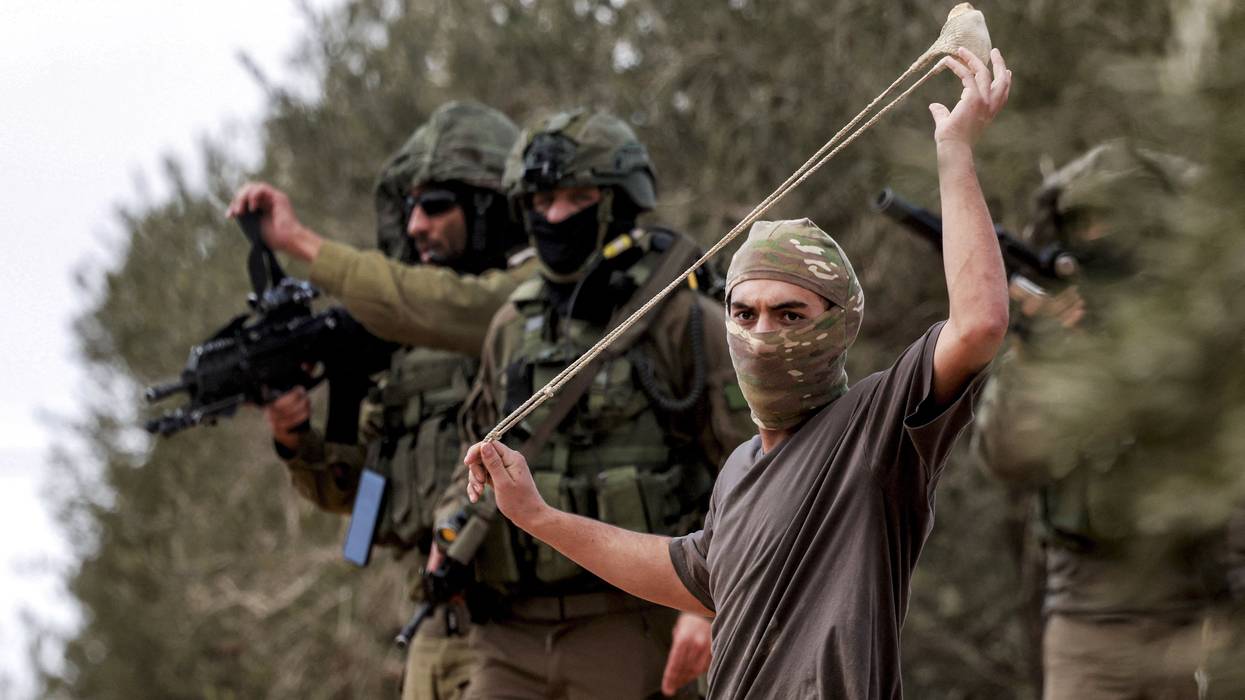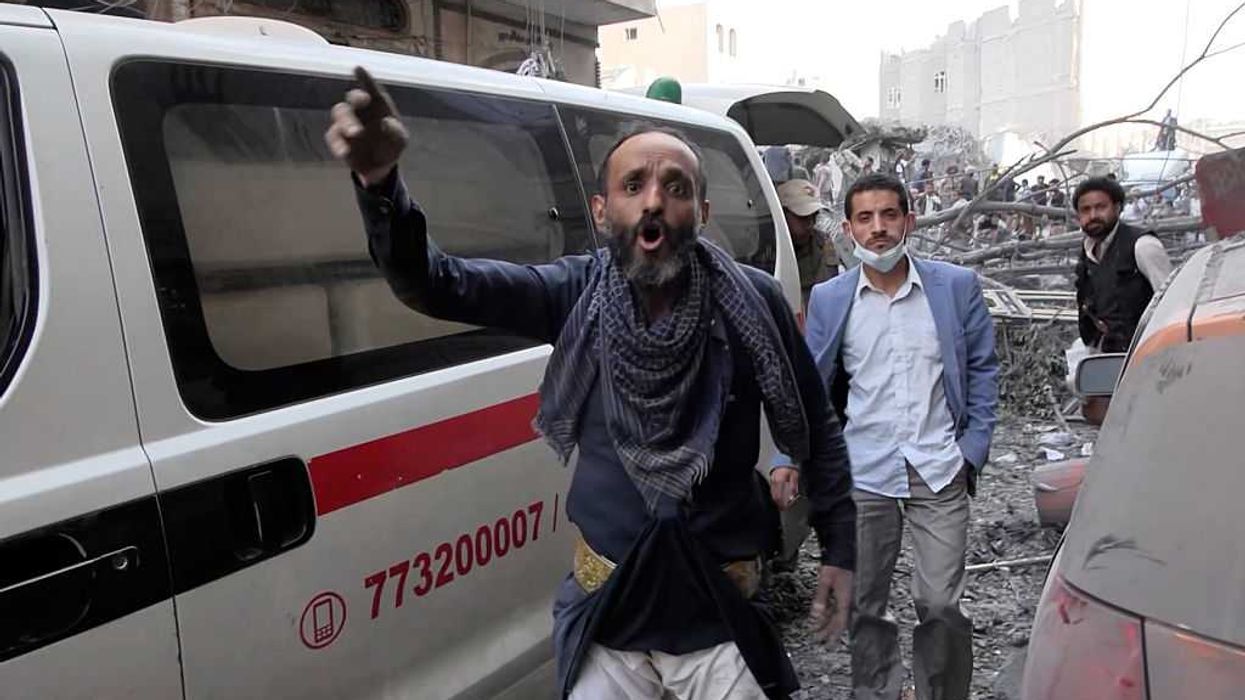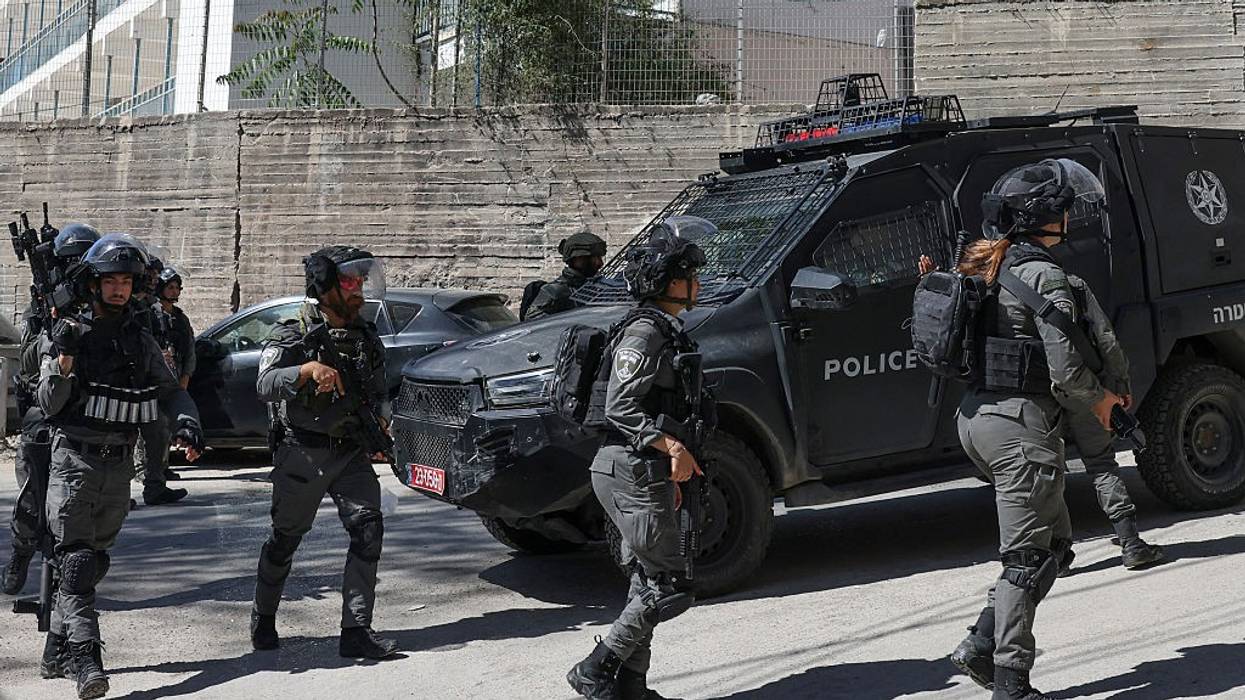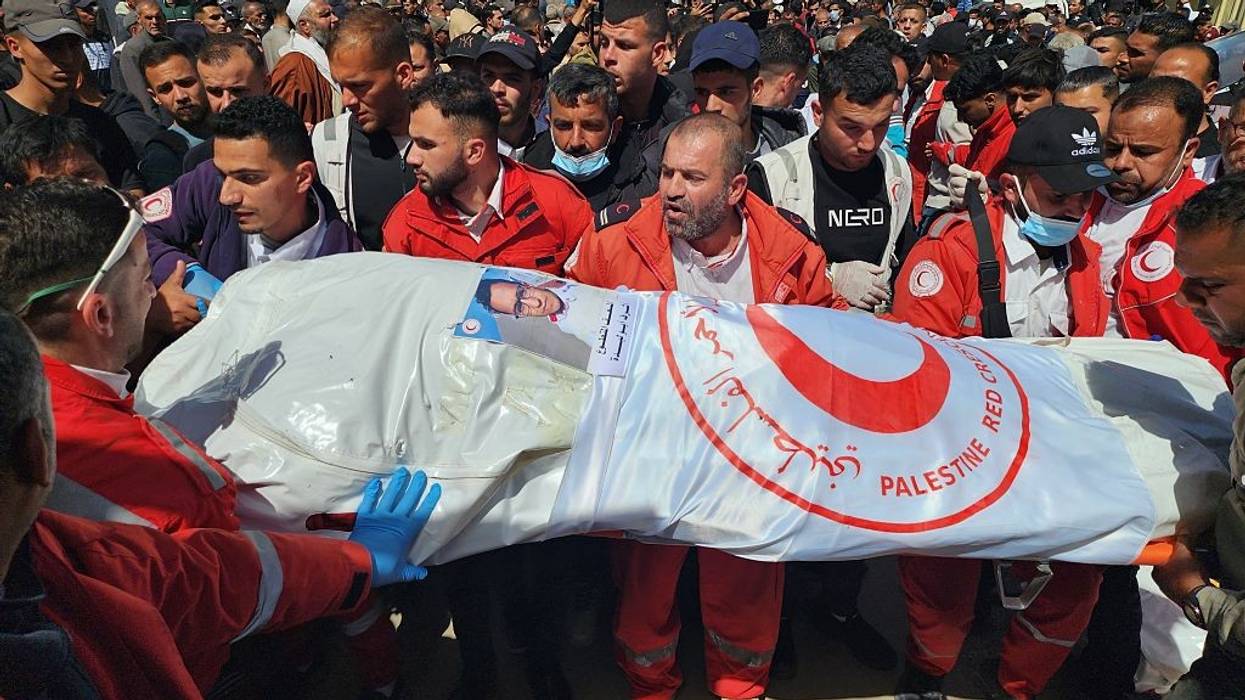'State-Backed Terrorism': Israeli Settler Attacks on West Bank Palestinians Hit Record High
"The systematic escalation forms part of a broader effort to consolidate Israeli control over the West Bank by depopulating it and expanding the territorial and operational influence of settlements," said one group.
Palestine defenders this week decried the ongoing surge in attacks by Israeli settler-colonists on Palestinians in the illegally occupied West Bank, which the United Nations humanitarian office says are occurring at the highest rate it has ever seen.
Israeli settlers seeking to ethnically cleanse Palestinians from their lands in order to steal them have ramped up violent attacks on local residents including olive farmers, as well as their trees and equipment, during the crucial harvesting season. Journalists who document the assaults and international activists trying to protect locals from the rampaging assailants have also been attacked.
The UN Office for the Coordination of Humanitarian Affairs said Friday that "October 2025 recorded the highest monthly number of Israeli settler attacks since OCHA began documenting such incidents in 2006, with more than 260 attacks resulting in casualties, property damage, or both—an average of eight incidents per day."
"Settler violence during this olive harvest season has reached the highest level recorded in recent years, with about 150 attacks documented so far, resulting in the injury of more than 140 Palestinians and the vandalism of over 4,200 trees and saplings across 77 villages," OCHA added.
The Israel Defense Forces (IDF) says it has documented 704 settler attacks this year through October, up from 675 in all of 2024. Israel's military says that police and Shin Bet—the internal state security agency—have failed to address this violence due to pressure from members of Israeli Prime Minister Benjamin Netanyahu's government, right-wing lawmakers, and religious leaders who believe that Israel has a divinely ordained right to steal all of Palestine.
However, Israeli and international human rights groups have long documented IDF participation or complicity in settler attacks.
On Tuesday, at least dozens of masked settlers launched a sweeping assault around the village of Beit Lid east of Tulkarm, setting fire to farmland, vehicles, and the al-Junaidi dairy factory.
The settlers reportedly wounded at least four Palestinians, attacked IDF soldiers, and damaged an army vehicle. Israeli police said they arrested four Israelis who allegedly took part in the raid.
The Israeli newspaper Haaretz reported additional settler attacks Tuesday targeting a Bedouin community and the nearby village of Deir Sharaf, east of Beit Lid. Videos show residents trying to extinguish fires set by the attackers. Eyewitnesses told reporters that IDF troops prevented emergency responders from helping to put out the fires.
Over the weekend, dozens of masked settlers attacked Palestinian olive harvesters, activists, and journalists, injuring more than 10 people including Reuters photographer Raneen Sawafta—who was severely beaten—people who tried to help her, a Palestinian medic, an IDF reservist, and local farmers.
The Foreign Press Association (FPA) said it was "appalled" by the surge in settler attacks.
"Journalists, both local and foreign, have proven to be a clear target as they document an unprecedented level of unchecked violence against Palestinians during this year's olive harvest," FPA said. "Israeli forces routinely harass and intimidate journalists, in some cases detaining them and threatening them with deportation. This is all part of a deepening climate of hostility toward the media by Israeli authorities."
Palestinian human rights activist Ihab Hassan said Tuesday on social media: "Israeli settler terrorism in the West Bank is state-backed terrorism. Armed, funded, and protected by the Israeli government and army. The world must stop watching in silence. Sanction the Israeli government that enables and sponsors the settler terrorism."
Mohammed Hijaz, a West Bank olive farmer, told NPR Monday: "We want to live in peace. We don't want this war, and we want to be able to get to our land, and to have a better life than what we have right now."
Settler violence has surged as the world's attention was focused on Israel's genocidal assault and siege on Gaza, which has left more than 249,000 Palestinians dead, maimed, or missing since October 2023, according to the Gaza Health Ministry.
During that period, OCHA says Israeli soldiers and settlers have killed more than 1,000 Palestinians in the West Bank, including at least 213 children and 20 women—among them a 78-year-old who died after being denied medical care for a heart attack suffered during an IDF raid northwest of Ramallah last week.
The Trump administration—which supports Israel with billions of dollars in armed aid and diplomatic cover—has lifted limited sanctions imposed during the tenure of former President Joe Biden against the most extreme settlers, some of whom have been slapped with sanctions by other countries.
This, even as President Donald Trump and his administration publicly oppose Israeli moves to steal and colonize more and more of the West Bank, which has been under illegal occupation since 1967.
"The systematic escalation forms part of a broader effort to consolidate Israeli control over the West Bank by depopulating it and expanding the territorial and operational influence of settlements," the Geneva-based Euro-Mediterranean Human Rights Monitor said in a statement Sunday.
"This includes turning settlers into practical extensions of the army in attacks and land seizure operations, while imposing new patterns of field control that entrench separation and isolation between Palestinian communities, undermining any possibility of establishing a contiguous or independent Palestinian entity," the group added.
In a recent interview with ITV News' Peter Smith, Daniella Weiss, an extremist settler leader who advocates the ethnic cleansing of all Palestinians from not only the West Bank but also Gaza, denied that Israelis are attacking Palestinians in the West Bank.
Israeli settler leader Daniella Weiss tries to claim that "there is no settler violence" against Palestinians.
In response, ITV News' Peter Smith pulls out his phone and plays a video of a recent attack on a grandmother in the West Bank.
Watch her reaction: pic.twitter.com/2o2FWCDQOu
— Decensored News (@decensorednews) November 1, 2025
When asked by Smith who supports plans by Israel's far-right to annex the West Bank given their illegality under international law and even opposition from the Trump administration, Weiss—who is under British and Canadian sanctions—replied, "Our sovereignty's here anyway, 'cause we got it from God."
Asked if her understanding of "God's plan" includes divine endorsement of violence to force Palestinians from their lands, Weiss rejected the premise of the question and refused to view footage of settlers attacking an elderly Palestinian woman.
"There is violence against settlers," she insisted, "there is no settler violence."



